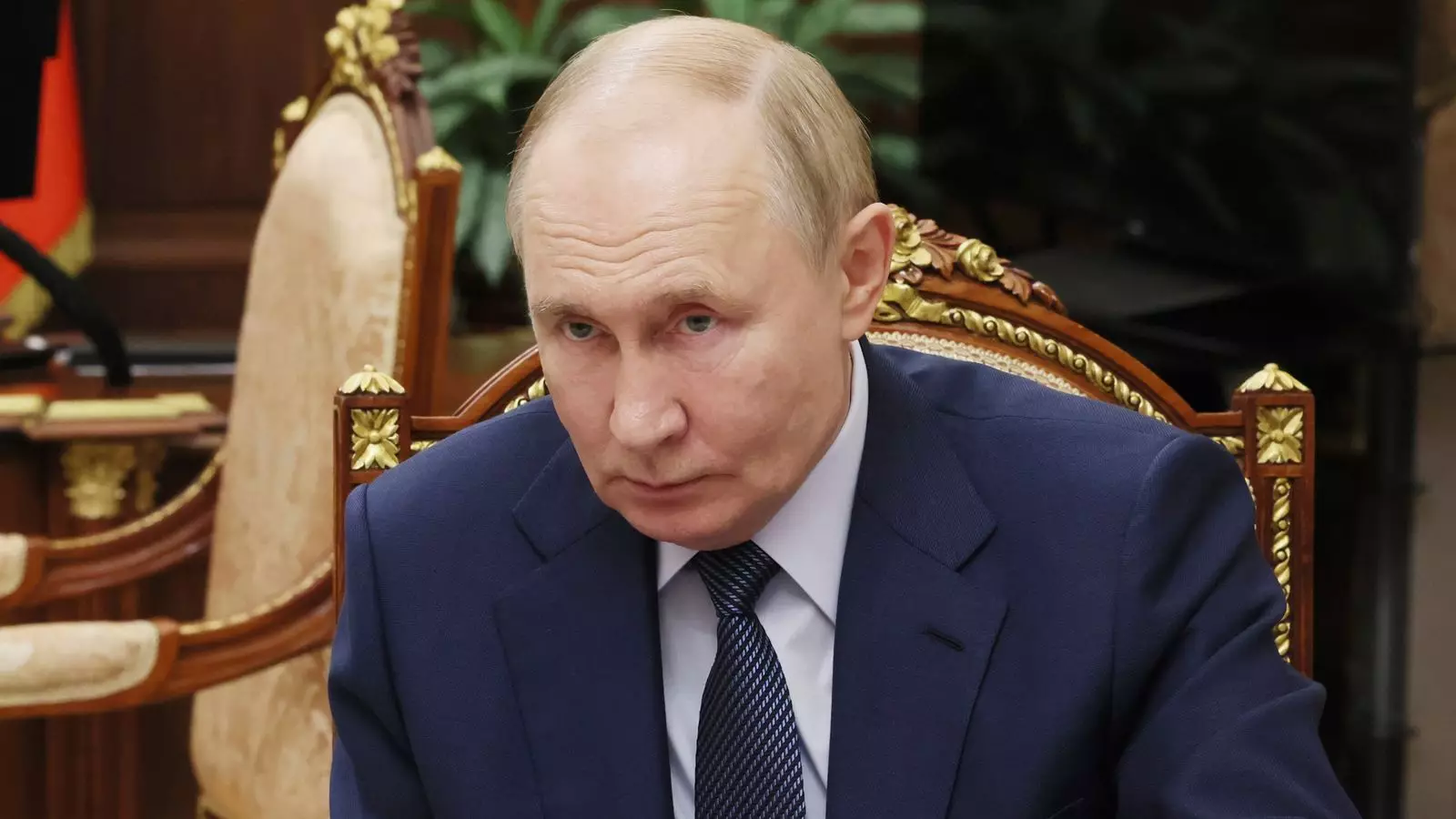In a decisive move to counter the ongoing threat posed by Russian aggression, the UK government has instituted a new sanctions package targeting Russian oligarchs connected to the Kremlin. This announcement comes as the world marks three years since Russia’s invasion of Ukraine, signaling a reaffirmation of the UK’s commitment to supporting Ukraine and holding those responsible accountable. The sanctions bolster previous actions taken against individuals profiting from Kremlin-aligned activities, underscoring the UK government’s determination to clamp down on financial networks that enable such behavior.
The geopolitical landscape has drastically changed since February 24, 2022, when Russia launched its invasion of Ukraine, igniting widespread international condemnation and calls for accountability. The UK’s response has included varying sanctions, targeting those directly and indirectly benefiting from the Kremlin’s aggressive policies. As part of this ongoing strategy, the Home Office announced fresh measures that restrict the entry of Russian elites into the UK, a move seen as both symbolic and practical.
The newly imposed restrictions apply not just to individuals who have directly funded military operations or engaged in illicit financial activities, but also to those who owe their wealth to their associations with the state. This broader scope reflects an understanding that oligarchs often wield substantial influence both within Russia and abroad, acting as conduits for the Kremlin’s interests in foreign territories. The strategic timing of these sanctions echoes a consistent message that the UK will not tolerate actions undermining democratic values and respect for international law.
Security Minister Dan Jarvis’s statement emphasizes the link between border security and national security, highlighting the necessity of protecting the UK’s integrity from external threats. By using stringent measures to sanction those enriching themselves through connections with the state, the UK aims to diminish the operational capacity of these oligarchs, effectively barring them from benefitting from British systems while voicing opposition to British norms.
The UK government categorizes these individuals as potentially dangerous, asserting that they might serve as “tools” for advancing President Putin’s agenda. The sanctions aim to send a clear message: individuals who seek to undermine democratic values in public while privately enjoying the benefits of a different system will face repercussions. By holding such figures accountable, the UK reiterates its commitment to international rules and principles, positioning itself as a leader among nations resisting autocratic influence.
Past enforcement actions, such as the aforementioned Operation Destabilise organized by the National Crime Agency (NCA), highlight the UK’s commitment to disrupting financial networks associated with Russian oligarchs. The operation, which successfully dismantled significant money laundering networks, revealed how these entities supported not only the oligarchs but also Kremlin espionage initiatives. The arrest figures and seized illicit funds reflect the scale and depth of these operations.
Moreover, the tracking down of Ekaterina Zhdanova and subsequent assets has illustrated a proactive approach in combating the financial underpinnings of Russia’s aggressive actions. These successes mark a crucial step in ensuring that similar operations targeting global financial systems are both identified and thwarted before they can facilitate further Kremlin interests. The ongoing collaboration with allied nations underscores that the struggle against economic malfeasance is a collective one.
While sanctions and financial measures are vital tools in curbing Kremlin influence, diplomatic channels remain equally essential. Recent talks between US officials and their Russian counterparts emphasize that resolutions derived from dialogue, although contentious, are pathways that need exploration. However, the absence of Ukrainian representatives raises questions about the legitimacy of proposed solutions. As Ukrainian President Volodymyr Zelenskyy and UK opposition leader Sir Keir Starmer have both made clear, any peace negotiation must include Ukraine to ensure its sovereignty is respected.
The upcoming visits by UK leaders to crucial political locations, including meetings with international figures, will attract significant scrutiny. These diplomatic maneuvers may influence future actions as the international community navigates its response to the evolving situation.
The UK’s recent sanctions mark a symbol of resistance against Russian aggression while also enhancing national security measures. They reflect an understanding that addressing the complexities of modern threats requires a combination of vigilance, enforcement, and diplomacy. The proactive stance taken today sets a tone for continued vigilance as the world deals with the consequences of the Kremlin’s actions.


Leave a Reply